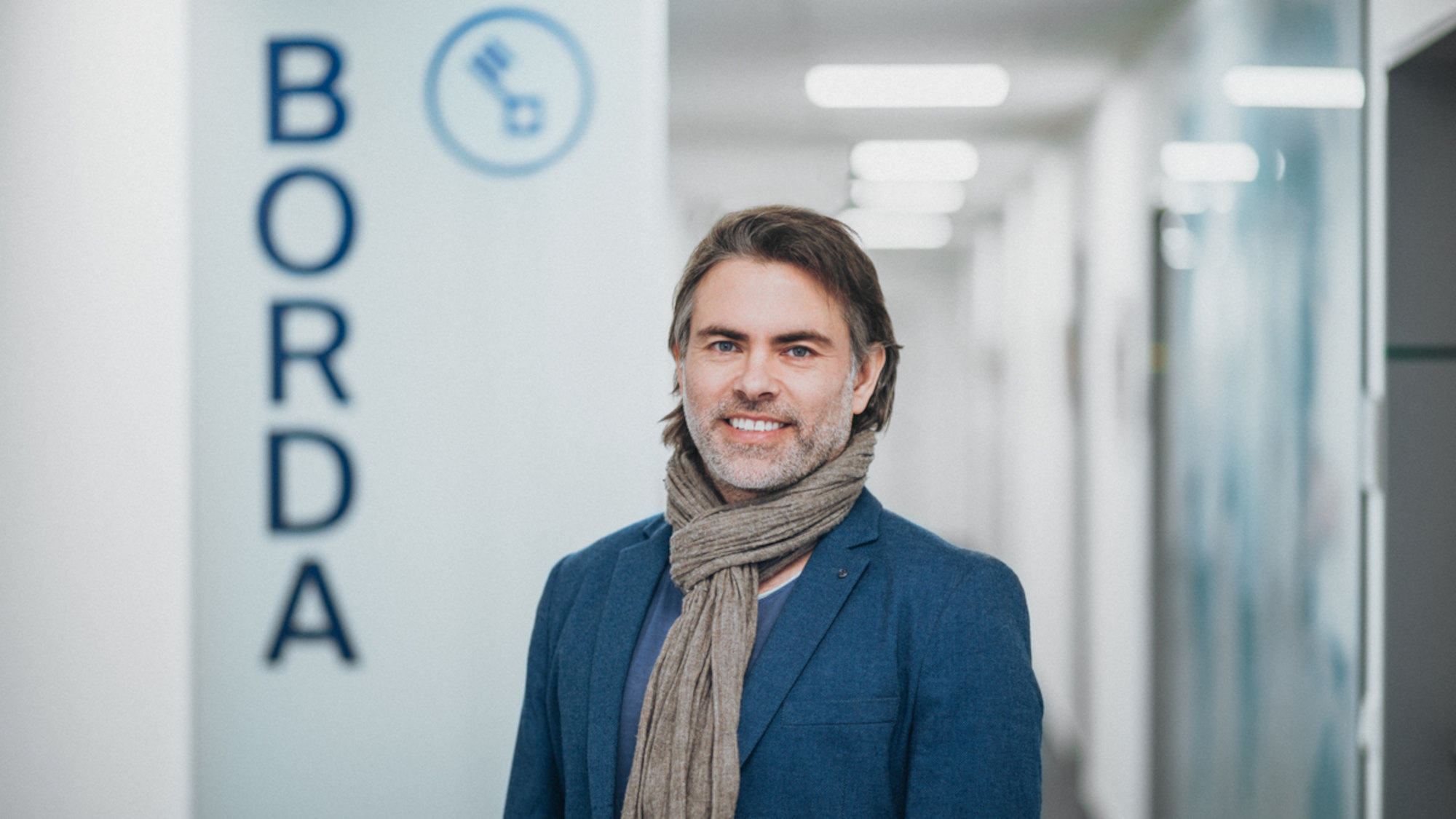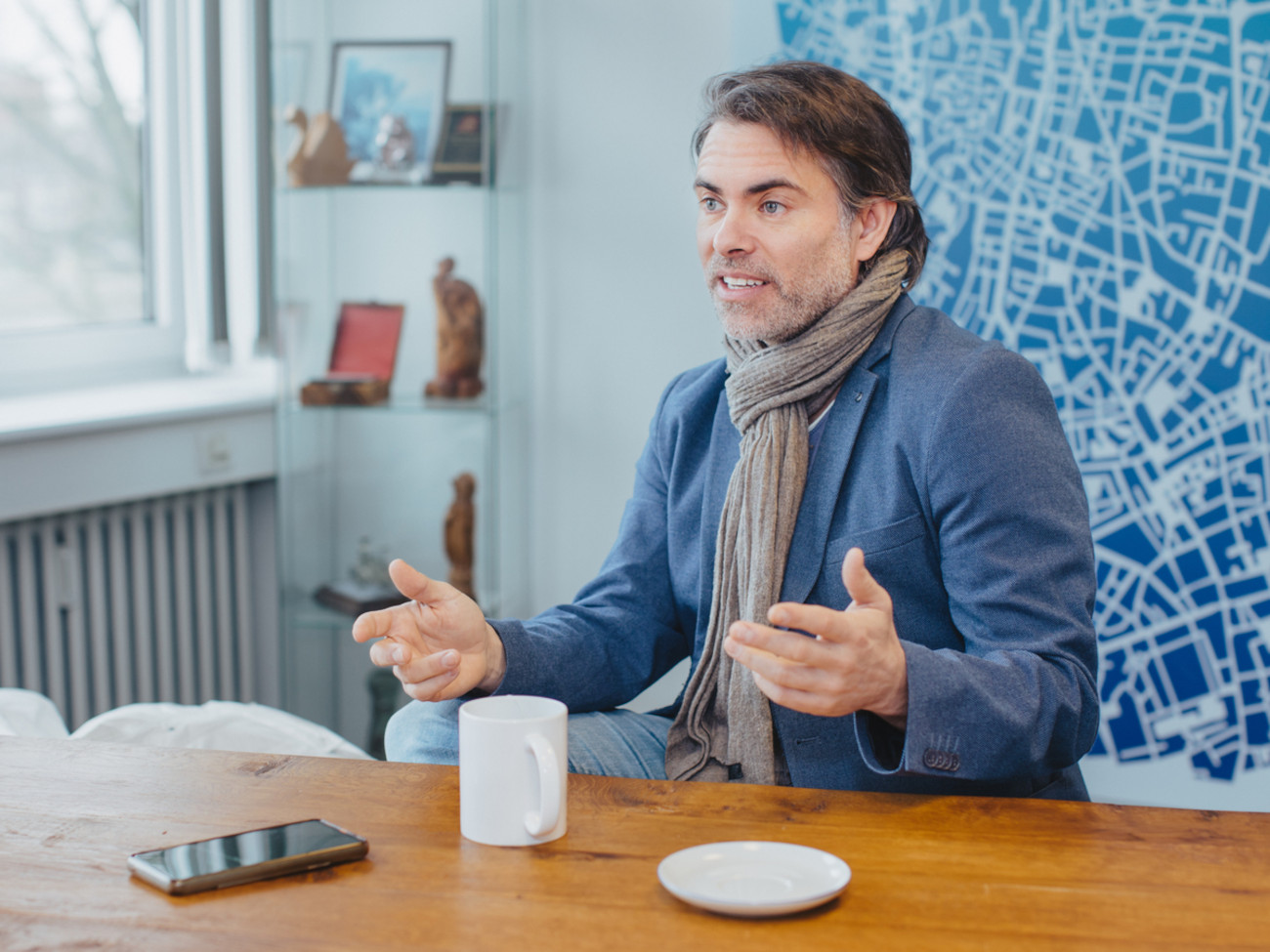
© Matej Meza / Universität Bremen
And Then? “Use Knowledge Wisely”
In this series, we present Uni Bremen graduates and their careers. This time: Dr. Alexander Wolf, regional coordinator for West and Central Asia and West Africa at the civil society expert organization BORDA.
BORDA, what is that? Alexander Wolf hears this question quite often when he talks about his career. BORDA is the “Bremen Overseas Research and Development Association.” Although it was founded in 1977, only a few people in Bremen are familiar with it. At its core, BORDA is about providing and sustaining development assistance at the local level for the benefit of disadvantaged sections of the population in urban areas, and ultimately about improving environmental protection. A field of activity that fits Alexander Wolf perfectly.
Alexander, how did your path lead to your current career?
Not very directly (laughs). I noticed early on that I was interested in the sea, more precisely in marine ecosystems. After graduating from high school in 1998, I first studied chemistry in Erlangen in order to establish a good scientific basis for my future. While studying chemistry, I not only learned how marine ecosystems such as mangroves work, but also that they are often threatened. I wanted to know what we could do to better protect them. That is why I pursued an additional degree in “Resource Management in Developing Countries” at Leiden University in the Netherlands. This was very exciting, because the focus was on the environmental aspects of development assistance. That suited me very well. Then the opportunity arose to learn more about marine systems as part of a doctorate in Bremen. I did not hesitate long and pursued my doctorate at the Leibniz Centre for Tropical Marine Research at the University of Bremen from 2009 to 2012. During this time, I was located in Bremen and in Curaçao, where I researched coral reef systems in times of climate change and pollution.
This sounds like a comprehensive scientific education. How is it that you decided not to stay in research?
I wanted to put my knowledge to practical use. At university, I lacked the opportunity to actively make a difference. We are all aware that the vast majority of coral reefs will die and marine ecosystems will be damaged as long as the causes of their endangerment are not addressed. I wanted to work on actively fighting these root causes, not just the symptoms. After my doctoral thesis, I looked around for a way to apply my knowledge profitably. That’s when I became aware of BORDA, where I have been working for a good ten years. Here, we specifically address the causes that lead to water pollution. Together with locals in 15 countries in Asia and Africa, a team of experts from different fields implements measures relating to wastewater treatment and urban development as well as food security.

© Matej Meza / Universität Bremen
What exactly is your role at BORDA?
I am a regional coordinator for West and Central Asia as well as West Africa. This means that I mainly work in an interface function between donors and our regional offices and support the regional colleagues who implement BORDA’s mission on site. Together we want to prevent the sewage from large cities from seeping into the soil or being dumped into the sea. Wastewater causes an ecosystem imbalance in the sea by creating too high a nutrient content, which leads to uncontrollable algae growth. Life without wastewater disposal systems is still common in many places in Asia and Africa. Sometimes it is not very easy to implement solutions that are more environmentally friendly. Cities such as Jakarta or Delhi, for example, have continued to grow without consideration for sewage systems. This means that a central wastewater disposal system, such as has been gradually built in Berlin over the decades, is no longer possible there. Therefore, we develop alternative approaches. These include several decentralized solutions that are as low-tech as possible, since electricity is unreliable in many of these regions. In such cases, we work with gravity, and utilize natural slopes instead of pumps.
It sounds like this requires a lot of creativity…
That is certainly true. We work on developing working solutions and show our on-site partners how to implement them. Our partners are mainly municipalities and town councils, but also UN organizations, local non-governmental organizations, and universities. We want to show that simple, non-technical solutions are possible and at the same time strengthen on-site capacities and anchor knowledge by helping others to help themselves. Our work often requires the ability to react to unforeseen events, both in our country offices and at our headquarters in Bremen. In such situations, I notice that the experiences from my doctorate in Bremen help me immensely. My doctoral degree was characterized by making progress on a topic in the face of adversity, and not despairing if something went wrong. Learning how to approach a project in a different way due to setbacks helped enormously then as it does now.
What tip would you give today’s students?
Study your favorite topic! When you feel connected to what you do every day, successfully completing your degree is much easier. If you realize that your first choice might not have been the right one, that’s no reason to despair. A doctoral degree, however, is in my opinion not always necessary. This decision requires careful consideration, because it can be very draining. For me personally, it was actually a stepping-stone because at the time, my experience in marine systems was limited. In marine sciences, in my opinion, it is not necessarily advisable to start a doctoral thesis directly after graduation. I would say that it is more effective to gain work experience first.
Speaking of experience: do internships, if possible, several. This makes it easier to find the right profession. At BORDA, we offer internships in various areas – ranging from geography to IT to social media. Geographically, we are well positioned: You can work in one of our regional offices in Asia or Africa or here at the administrative headquarters in Bremen’s Neustadt district.
Further Information:
Contact for internship requests: office@borda.org